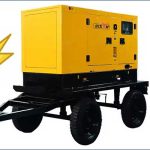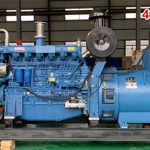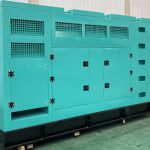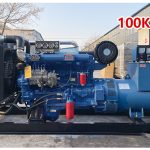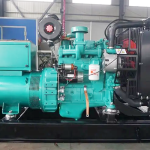Gasoline generators have become an indispensable power solution in various settings. Their versatility and portability make them ideal for providing electricity in remote locations, during emergencies, and for recreational activities. Understanding the different types of gasoline generators available can help you select the best one for your needs.
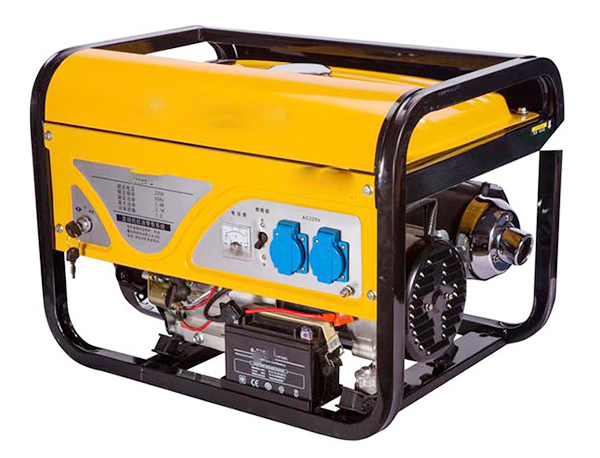
Portable Gasoline Generators
Firstly, portable gasoline generators are popular for their convenience and ease of use. These generators are typically small, lightweight, and designed for mobility. They are perfect for camping trips, tailgating events, and small-scale home backup power. Moreover, portable generators often feature user-friendly controls and a range of power outputs, making them suitable for running essential appliances and tools. For instance, a portable gasoline generator might power your refrigerator, lights, and a few other critical devices during a power outage.
Portable gasoline generators have a wide array of applications. While they are great for short-term power needs, their fuel capacity is usually limited, meaning they need frequent refueling. This type of generator is generally less powerful compared to stationary models, but their portability makes them extremely versatile.

Inverter Gasoline Generators
Inverter gasoline generators are another significant category. Unlike traditional generators, inverters produce clean and stable electricity. They achieve this by converting AC power to DC power and then back to AC. As a result, they are ideal for sensitive electronics like laptops, smartphones, and medical equipment. Additionally, inverter generators are known for being quieter and more fuel-efficient than conventional models.
Furthermore, inverter gasoline generators often feature parallel capability. This means you can connect two units to double your power output without sacrificing portability. Although they tend to be more expensive, their benefits often justify the cost, especially for those who require stable and clean power for electronic devices.
Standby Gasoline Generators
Standby gasoline generators provide a reliable and continuous power supply during outages. These generators are permanently installed outside a home or business and are connected to the electrical system. They automatically start when the power goes out and shut off when the utility power returns. Standby generators can power an entire home, including all appliances, HVAC systems, and lighting.
The primary advantage of standby gasoline generators is their ability to provide uninterrupted power. They are essential for businesses that cannot afford downtime, such as hospitals, data centers, and manufacturing plants. Although they require a higher initial investment and professional installation, the reliability and peace of mind they offer are invaluable.
Recreational Gasoline Generators
Recreational gasoline generators are designed for outdoor activities and leisure use. These compact and lightweight units are perfect for camping, RVing, and tailgating. They provide enough power to run small appliances, lights, and other essential devices while you enjoy the great outdoors. Moreover, many recreational generators come with features like USB ports and multiple outlets to accommodate various devices.
These generators are designed with portability in mind, featuring handles or wheels for easy transportation. While they may not offer the same power output as larger models, their convenience and ease of use make them popular for outdoor enthusiasts.
Industrial Gasoline Generators
Industrial gasoline generators are built to handle heavy-duty applications. They are designed for construction sites, mining operations, and other industrial settings where reliable power is crucial. These generators typically offer high power output and are constructed to withstand harsh environments. Additionally, industrial generators are often equipped with features like reinforced frames, large fuel tanks, and advanced monitoring systems.
Because of their robust design, industrial gasoline generators can operate for extended periods and provide power to multiple high-demand devices simultaneously. While they are not as portable as smaller models, their durability and high performance make them essential for industrial use.
Choosing the Right Gasoline Generator
When selecting a gasoline generator, several factors should be considered. Firstly, determine the power requirements of the devices you need to run. This will help you choose a generator with the appropriate wattage. Secondly, consider the runtime and fuel efficiency, especially if you plan to use the generator for extended periods. Additionally, noise levels may be a concern, particularly for residential or recreational use.
Another important factor is the generator’s size and portability. If you need a generator for mobile use, a lightweight and compact model will be more suitable. Conversely, for permanent installations, a larger, more powerful generator may be necessary. Safety features, such as automatic shutoff and overload protection, should also be considered to ensure safe operation.

Conclusion
Gasoline generators come in various types, each designed to meet specific needs and applications. Portable and recreational generators offer convenience and mobility, making them ideal for short-term and outdoor use. Inverter generators provide clean and stable power for sensitive electronics, while standby generators ensure uninterrupted power during outages. Industrial generators deliver the robust performance required for demanding environments. By understanding the different types of gasoline generators, you can make an informed decision and choose the right generator to meet your power needs.






